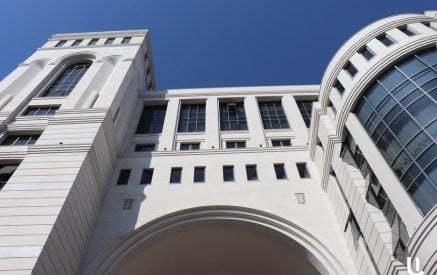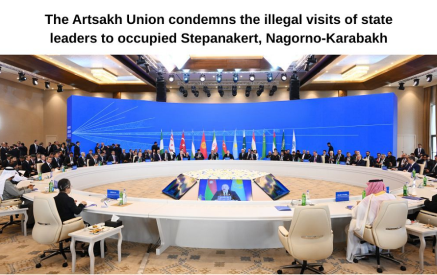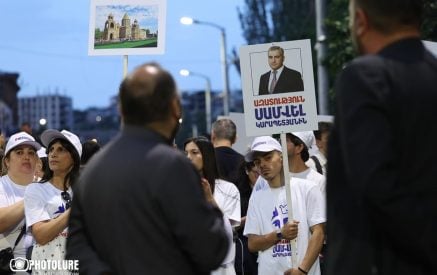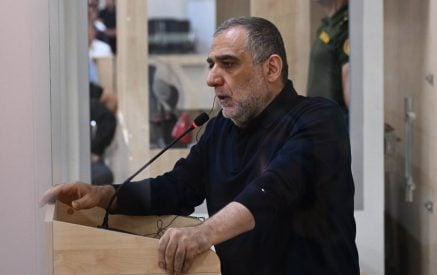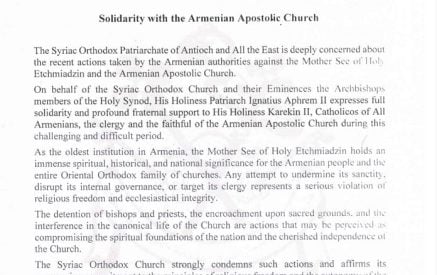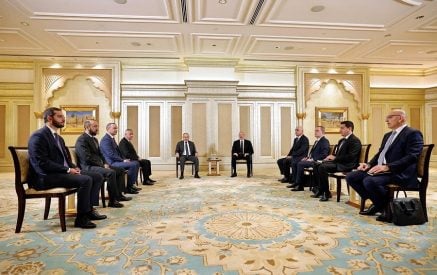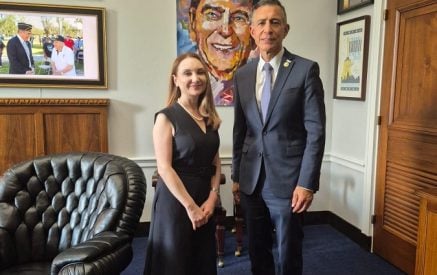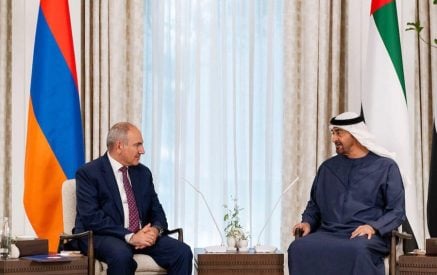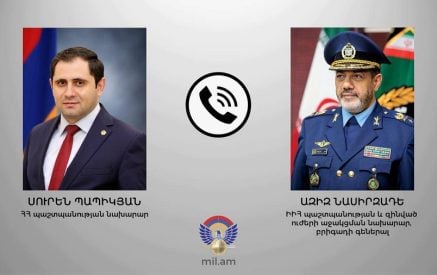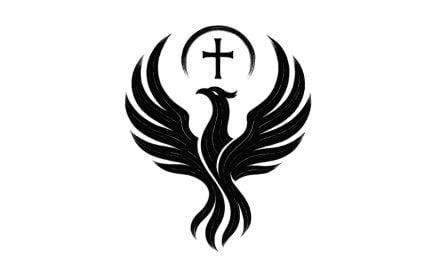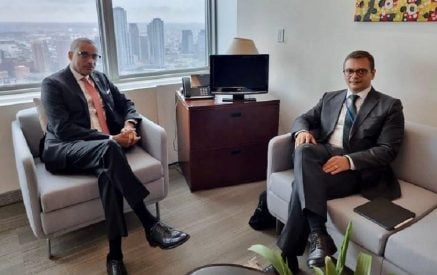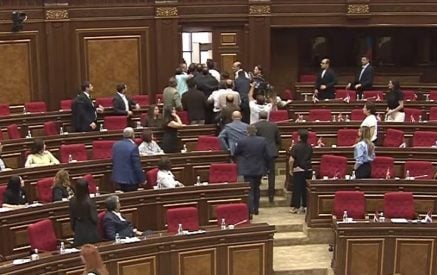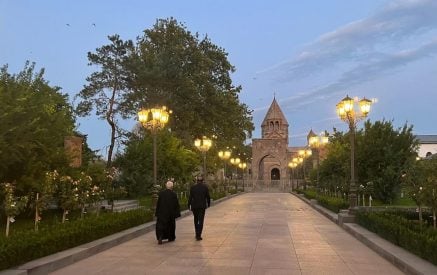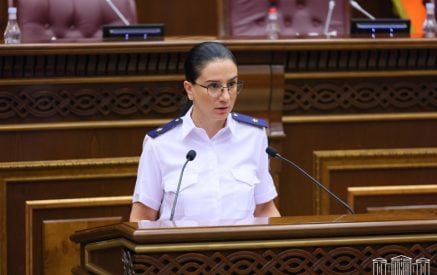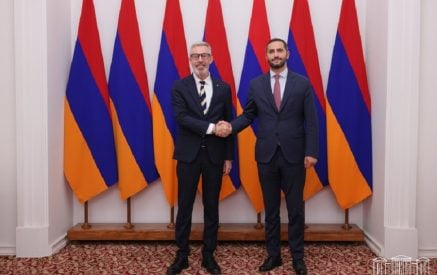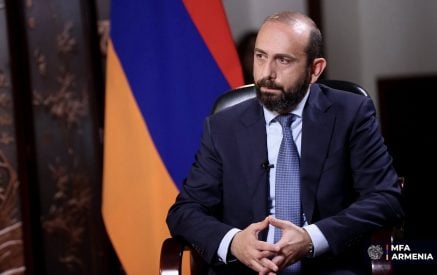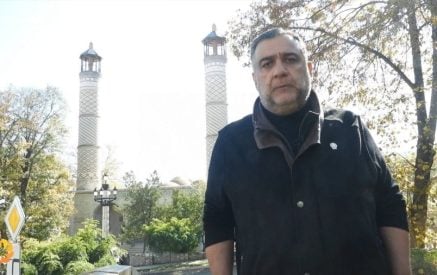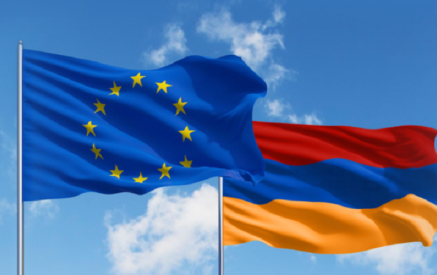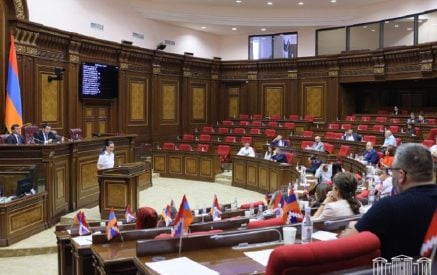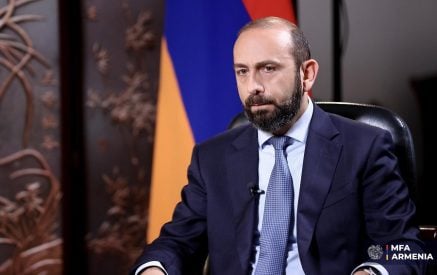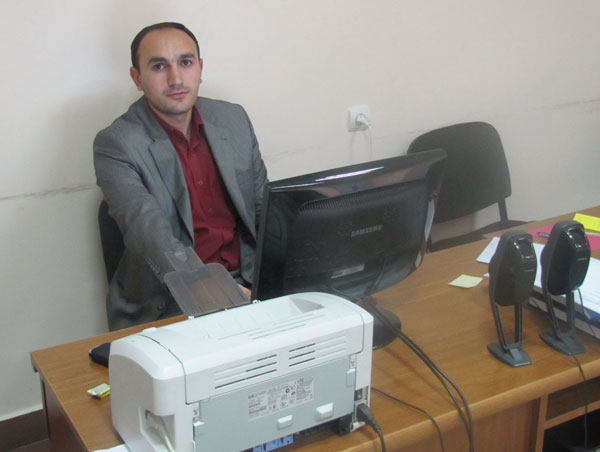“Aravot” hosts Turkologist Hayk Gabrielyan
– Mr. Gabrielyan, last week, co-chairs of pro-Kurdish Peoples’ Democratic Party (PDP), Selahattin Demirtaş and Figen Yüksekdağ and several other lawmakers were detained in Turkey. In July, after the attempt of the military coup in Turkey, tens of thousands of people were arrested. If we describe the processes taking place in Turkey over the past few months, what can we conclude, where does Erdoğan lead Turkey?
– Pro-Kurdish People’s Democratic Party mainly appeared in the target of Erdoğan after the parliamentary elections of 7 June in 2015 as he was able to overcome the 10-percent electoral threshold and receive 80 mandates in the 550-member parliament by becoming the 4th largest force of the parliament (The “National Movement” Party (MHP) also received 80 mandates but since MHP compared with PDP has received about 1.5 million more votes, he became the 3rd largest force in the parliament). Mainly because of it, the ruling “Justice and Development” party (AKP) first time in its history failed to obtain the right to establish a one-party government.
Apparently, Erdoğan had underestimated the potential of the PDP which led to such a result for AKP. After that Erdoğan tried to correct the mistake which was manifested by the pressures against PDP, by the steps aimed at the obstruction of the pre-election campaign, by commencing military hostilities and the destructions with the use of military heavy equipment in the Kurdish-populated provinces so that the PDP would fail to overcome the electoral threshold which would significantly increase the number of AKP’s parliamentary mandates. However, on November 1, the PDP was able to (once again) overcome the electoral threshold in the re-elections though this time, it received 21 mandates less: 59 mandates.
Thus, PDP became the third largest force in the Turkish Parliament (MHP this time got double less mandate – 40). Naturally, it was also unacceptable for Erdoğan and he decided to get rid of the PDP elite and to decapitate the party which is contributed by the lifting of immunity of deputies in the current year by the initiative of the AKP. Moreover, I expect that the Turkish authorities will use the proven method in the past against the Kurdish parties against the PDP: to achieve the closure of the party by the legal way “as a supporter of terrorism.”
As for the bloody military coup attempt in the history of the Turkish Republic, the organizers had planned to remove Erdoğan from the power but instead, unwittingly, they granted him the unique opportunity to establish a state of emergency in the country and to get rid of all unwanted elements. This will further contribute to “erdoghanization”, the enhancement of his sole governance, and in the case of the absence of force majeure situations, they will meet the year 2023 (the 100th anniversary of the establishment of the Turkish Republic by Mustafa Kemal Atatürk) not in the “Atatürk Turkey” but in “erdoghanized Turkey” (Erdoğan apparently will be re-elected in the position of the president of Turkey for 5 years term in 2019). A few days ago, at the meeting with well-known public figures in Ankara, Erdoğan announced that the events in 1453 (the Conquest of Istanbul) and 1923 (the establishment of the Turkish Republic) have the same meaning for the Turkish people as the events of 15 July 2016 (the failure of the military coup attempt). Therewith Erdoğan makes things clear that at least he is not less than Ottoman Sultan Fatih Mehmet 2 (the Conqueror) who conquered Constantinople 563 years ago and the same Kemal Atatürk.
– Recently, Murat Sabuncu, editor-in-chief of opposition “Cumhuriyet” newspaper was detained in Turkey, and the court issued a decision of arrest against nine detained employees of the newspaper. It is known that the number of Turkish citizens requesting asylum in Germany has been increased dramatically this year. There is an Armenian community in Turkey and many Armenians. How dangerous are the latest events first of all for the citizens of Armenia as well as for Armenian ethnic citizens in Turkey, particularly for the Armenian lawmakers?
– “Cumhuriyet” influential newspaper is known for its opposition stance and naturally has appeared in the target of Erdoğan long ago, especially when it revealed that the Turkish National Intelligence Organization (MIT) supplies weapons by trucks in secret to the Syrian President Bashar Assad’s opponents. I do not exclude that the newspaper will be shut down shortly by sharing the destiny of another popular opposition newspaper “Zaman”. Although after the military coup attempt, an overall control is toughened in Turkey, an emergency mode is set up for 3 months (which was extended for another three months), I do not see particular problems for the RA citizens and the Armenian community in Turkey for they were not associated with the latest events. In any case, the unstable situation in Turkey and numerous terrorist attacks should be more worrying for them. The situation can be considered dangerous only for Garo Paylan, one of the three Armenian lawmakers in the Turkish parliament, given his party affiliation (PDP which is the target of the authorities) and his pro-Armenian huge activities, the pro-Armenian initiatives in the Turkish parliament which were painfully perceived by the Turkish authorities.
– Mr. Gabrielyan, it is known that constitutional amendments will be held in Turkey next year. What major changes are expected and what are the goals of Erdoğan?
– I am sure that in the near future Turkey will adopt a new draft of constitution which apparently will be passed through the referendum as it requires 367 votes for its passing (2/3 of the parliament) while the AKP has 317 seats (to put the draft of the new constitution for referendum, it requires at least 330 votes, 3/5 of the Parliament). The new constitution will replace the one adopted on 12 September, 1980, after the bloody military coup in the history of Turkey which had granted big rights to the military and judiciary.
Although on October 21, 2007, and on September 12, 2010 (exactly 30 years after the bloodiest military coup), as a result of the referendum on constitutional amendments under the initiative of the AKP, significant changes were made in the Constitution, Erdoğan preferred to adopt a new Constitution which primarily implies a transition from the parliamentary system of governance to the presidential system (“One man” mode). Given this very fact (a perspective of the president with huge powers), Erdoğan decided to become a president of Turkey in 2014 by conceding his powers to the prime minister of the country. Erdoğan was pushed to this move by the AKP’s internal regulations according to which his representative could not be elected as a deputy more than 3 terms (Erdoğan has already become a member for the third term). In fact, Erdoğan initially has sought to demonstrate his “exclusivity” in the position of the president, announcing that he is the first president of Turkey elected by the people (until then, the president was selected by the Parliament of the country), and therefore he “cannot have” the same functions as it were in the case of the presidents selected by the parliament. Erdoğan also showed his “exclusivity” by abandoning the “Chanakya” presidential residency and moving to the “Turkish White House” which by different sources has 1000-2200 room. To be continued
EMMA GABRIELYAN



